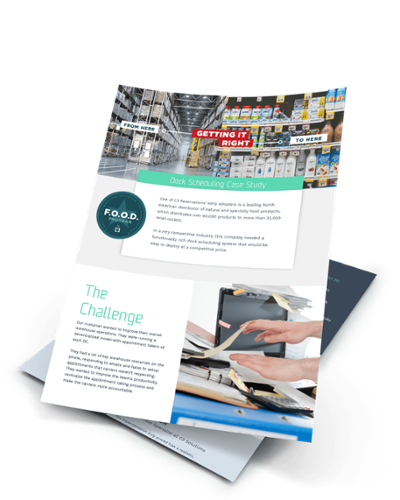Food Waste: How Supply Chains Can Do Better?

Our world produces a plentiful bounty of food each year. However, a shocking amount of it never makes it to our plates. Out of all food produced globally, a staggering 2.5 billion tons is lost or wasted annually. This wastage constitutes over a third of the entire food production, a shocking statistic considering the number of people around the world who go to bed hungry. The Boston Consulting Group (BCG) estimates that the monetary value of this squandered resource is around $230 billion, a colossal loss in an era where economic stability is a concern for many countries.
Moreover, food waste is not just a financial or ethical issue. It also has significant environmental implications, from unnecessary land and water use in production to greenhouse gas emissions from decomposition. This dual impact, both humanitarian and environmental, underscores the urgency of addressing food waste as a pressing global concern.
The Challenge of Managing a Food Supply Chain in a Post-COVID World
The COVID-19 pandemic has further exacerbated the already critical issue of food waste. The unprecedented shifts in demand, necessitated by changes in consumer behavior, alongside disruptions to supply chains due to lockdowns, have led to a dramatic increase in food wastage. Furthermore, the implementation of stringent health and safety measures, including social distancing and enhanced sanitation protocols, has complicated food transportation and storage logistics.
Supply chain managers are now grappling with the complex task of revamping their operations to mitigate food waste while simultaneously adjusting to the 'new normal' in market dynamics. In this context, innovative strategies and solutions for supply chain management are more crucial than ever.
How Better Yard Management Makes a Difference
An efficient yard, the heart of a logistics operation, plays a pivotal role in reducing food waste within supply chains. A well-coordinated yard ensures the seamless movement of goods, which is critical in the food sector, where delays can lead to spoilage and waste.
Real-time visibility of yard assets, provided by modern yard management solutions, offers an essential tool in this regard. Such visibility allows for the immediate identification and tracking of trailers and tractors, assessing availability, and monitoring gate activities. This results in a more efficient operation, reduces delays, and ultimately mitigates the risk of food spoilage.
Automated task assignment for yard drivers, facilitated by yard management systems, also plays a vital role in reducing food waste. Providing clear instructions and tracking the execution of tasks in real-time, allows for quicker reaction times and efficient handling of food items. Furthermore, efficient gate control strategies can improve throughput and ensure that perishable food items are moved swiftly, thus reducing the chance of spoilage.
The Benefits of Improved Yard Management
Improved yard management, facilitated by modern technology, doesn't just address the issue of food waste. It also drives operational efficiency, streamlines processes, and enhances overall visibility. By digitizing and streamlining gate operations, a significant bottleneck in many logistics operations can be removed, leading to faster and more efficient movement of goods. Additionally, by replacing traditional, manual processes with automated systems, accuracy is improved, reducing errors that can lead to food spoilage.
Inbound planning tools, which provide a clear view of the upcoming activities, can help to balance the dock and yard drivers' workload, reducing delays and enhancing efficiency. This improved planning can lead to better resource allocation, ensuring that perishable goods are handled promptly and reducing the risk of waste.
Additionally, integrated reporting and alert systems allow for real-time identification of issues and prompt action, reducing the chances of food spoilage. These systems also provide data that can help in strategic decision-making, leading to more efficient and less wasteful operations. Simply put, advanced yard management not only helps in mitigating the food waste issue but also paves the way for a more efficient, agile, and sustainable supply chain operation.
How C3 Solutions Can Make a Difference
In the quest to reduce food waste and improve supply chain efficiency, technology offers a powerful tool. C3 Solutions' innovative approach to yard management, for instance, provides a platform that can help businesses streamline their operations and reduce waste.
C3's system, C3 Yard, provides real-time visibility of yard assets, automates task assignment for yard drivers, and offers tools for gate control, inbound planning, and dock management. Its business rule engine allows for the automation of repetitive tasks, helping businesses gain efficiencies and reduce waste.
Moreover, C3 Yard is fully configurable, fitting into the unique business processes and requirements of each company. Its integration capabilities with other supply chain systems can amplify its benefits, creating a seamless, efficient, and less wasteful supply chain operation.
Finally, C3 Yard's mobile application brings flexibility and real-time monitoring, allowing yard personnel to access all relevant functionality on the go. In a world where food waste is a significant and growing problem, innovative solutions like those offered by C3 Solutions can make a real difference, helping businesses improve their operations, reduce waste, and contribute to a more sustainable future.


